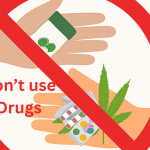Alcohol withdrawal symptoms can range from mild to severe, and they can include:
- Anxiety
- Tremors
- Sweating
- Nausea and vomiting
- Headache
- Insomnia
- Seizures
- Hallucinations
- Delirium tremens
The severity of withdrawal symptoms depends on a number of factors, including the amount and frequency of alcohol consumption, the length of time the person has been drinking, and their overall health.
Alcohol detoxification is typically done in a hospital or rehabilitation center in delhi. Treatment may involve medications to help manage withdrawal symptoms, as well as supportive care such as fluids and nutrition. The length of detoxification typically ranges from a few days to a week.
Alcohol detoxification is significant in addiction recovery because it allows the person to start their recovery process with a clean slate. Once the alcohol is out of their system, they can begin to focus on addressing the underlying issues that led to their addiction.
People who detoxify from alcohol are more likely to stay sober in the long term, and they are also more likely to benefit from other addiction treatment programs, such as therapy and support groups.
Here is a summary of the significance of alcohol detoxification in addiction recovery:
- It allows the person to start their recovery process with a clean slate.
- It reduces the risk of serious withdrawal symptoms.
- It increases the chances of success in other addiction treatment programs.
- It improves the person’s overall health and well-being.
If you or someone you know is struggling with alcohol addiction, it is important to seek help. Alcohol detoxification is a safe and effective way to start the journey to recovery.
The alcohol detoxification process typically involves the following steps:
- Assessment: The medical professional will assess the person’s drinking history, overall health, and severity of withdrawal symptoms. This will help them to determine the best course of treatment.
- Detoxification: The person will be monitored closely as they detox from alcohol. This may involve medications to help manage withdrawal symptoms, as well as supportive care such as fluids and nutrition.
- Aftercare: Once the person has detoxified from alcohol, they will need to continue to receive support and guidance. This may involve therapy, support groups, or other aftercare programs.
The length of the alcohol detoxification process varies depending on the individual. For some people, it may only take a few days. For others, it may take a week or more. The severity of withdrawal symptoms is also a factor. People with severe withdrawal symptoms may need to stay in a hospital or rehabilitation center for longer.
It is important to note that alcohol detoxification is not a cure for alcoholism. It is only the first step in the recovery process. Once the person has detoxified, they will need to continue to receive treatment to address the underlying issues that led to their addiction.
Here are some tips for safe and successful alcohol detoxification:
- Do not detoxify alone. Seek medical supervision to ensure your safety and well-being.
- Be honest with your medical professional about your drinking history and any other health conditions you have.
- Follow your medical professional’s instructions carefully.
- Be patient. It may take some time to fully detox from alcohol and recover from withdrawal symptoms.
- Seek support from family, friends, or a support group.
If you or someone you know is struggling with alcohol addiction, please reach out for help. Alcohol detoxification is a safe and effective way to start the journey to recovery.











